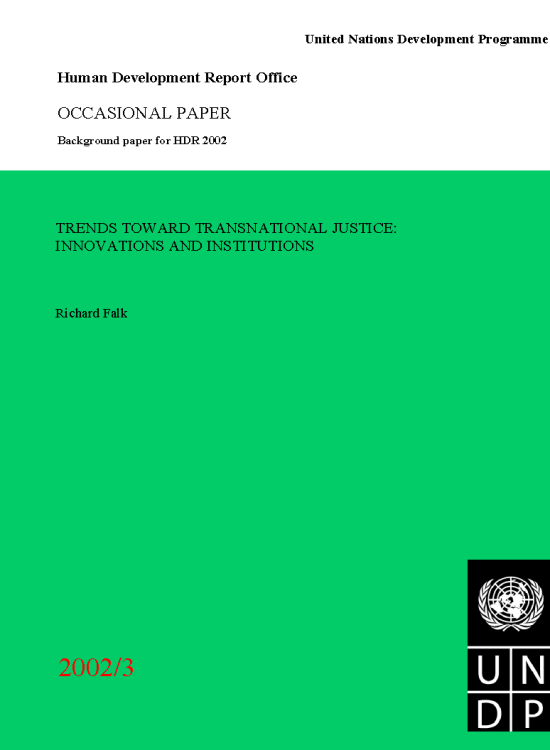Trends Toward Transnational Justice
Innovations and Institutions

Download Report by Language
Document
falk2002.pdf
(228.02 KB)
Citation
Falk, Richard. 2002. Trends Toward Transnational Justice: Innovations and Institutions. New York.
Trends Toward Transnational Justice
Innovations and Institutions
Posted on: January 01, 2002
Significant changes in the global setting over the course of the last few decades resulted in an increasing prominence for the pursuit of transnational justice and individual accountability. The aftermath of the terrifying attacks on America on September 11th seems likely to halt this trend, at least temporarily, but not necessarily. If winning this new war against terrorism is understood to depend on addressing its roots in deprivation and grievance, then the indirect effect of the attacks could be to strengthen awareness that the promotion of justice is integral to global security rather than a matter of generosity or empathy. Six developments in the global context have encouraged the pursuit of global justice, and provide a background for an appreciation of the institutional and substantive innovations that have taken place in response: (1) the end of the ideological rivalry that accompanied the cold war; (2) the focus of attention on world economic policy within a market-oriented framework; (3) the relevance of international human rights standards to a series of peaceful transitions from authoritarian rule to constitutional democracy; (4) the heightened influence of transnational social forces and networks of activists in a wide array of normative (ethical, legal) arenas of decision; (5) the anticolonial movement as an implementation of the right of selfdetermination; and (6) the geopolitics of ambivalence with respect to the conduct of humanitarian diplomacy either under the auspices of the UN or on some other basis. Each of these developments deserves some brief explanation.

